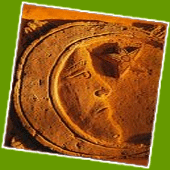| |
You are here : : Tours
2 India : : Travel Tips
Travel Tips
The Indian Seasons
India has three major seasons:
winter, summer and the monsoon. The winter months
(November-February) have bright, sunny days and
are pleasant throughout India .
The summer months (April-June) are hot in most
parts of India . During this period, hill stations
such as Shimla, Mussoorie, Nainital, Kullu and
the Kashmir valley (North), Darjeeling, Shillong
(North-East), Ootacamund, Kodaikanal (South),
Pachmarhi (Central India) and Mount Abu (Rajasthan)
provide cool retreats.
The monsoon is an amazing phenomenon of nature.
Sometime in June, the clouds break in the coast
of southern India and are pushed up northwards
by July - immersing the entire Indian sub-continent
in torrents. Except for the south-eastern region,
India receives its major share of rain between
June and September. The south-eastern areas receive
most rainfall from the northeasterly monsoon between
mid-October and December-end. However, the only
area which remains dry is the highest desert in
the world - the fascinating moonscape of Ladakh.
This is the time to trek up here.
Documents &
Formalities
PASSPORTS
All travellers to India must
possess a valid passport. It is advisable to carry
your passport during your travel while in India
for possible identification requirements.
VISAS
All foreign tourists to India
(barring nationals of Nepal and Bangladesh ) must
possess a valid visa. Visas are not issued on
arrival. The cost of the visa is US$ 30 for upto
six months, US$ 50 for upto one year and US$ 100
for more than year and upto five years. Contact
the Indian Embassy or consulate in you country
with the required documents for issuance of visas.
A tourist visa is valid for three to six months.
 Money
Matters Money
Matters
The Indian currency is the
Rupee and it is a fully convertible currency.
The Rupee notes are available in denominations
of 1000, 500, 100, 50, 20, 10, 5, 2 and 1. Coins
are available in the denominations of 5,2,1 (rupee)
and 50 and 25 paise.
Foreign Currency
Foreign exchange/currency
brought into India must be declared at Customs
should the value of foreign currency exceed US$
2,500 or the aggregate value of the foreign exchange
including currency notes exceeds US$ 10,000 or
equivalent. You can exchange money at international
airports where 24-hour exchange facilities are
available through banks and approved money changers.
You can also change money at nationalized banks
and other banks in the country.
Customs On Arrival
There are two customs clearance
channels. The green channel is for travellers
carrying non-dutiable items while the red channel
is for travellers carrying dutiable items.
Duty-free items
Duty-free items which you
may bring to India include personal effects like
clothing and other articles but not if this is
commercial merchandise. All expensive electronic
equipment/s must be declared at the Customs on
arrival - which will be re-checked on departure.
Take care to obtain an Export Certificate for
these items if you are travelling to neighbouring
countries and intend a multiple entry.
You can not bring in gold coins, gold or silver
bullion into the country. Weapons brought into
the country should be licensed and declared. Any
cash or travellers cheques over US$ 10,000 or
equivalent must be declared. Possession of narcotics
is strictly prohibited. Personal effects which
are not used during your stay must be carried
back to you.
Gift worth Rs. 4000 for tourists of foreign origin
and Rs. 12000 for tourists of Indian origin, 200
cigarettes or 50 cigars or 250 gm of tobacco,
one litre each of wine and spirits is allowed
free of duty.
Guides
Trained English speaking guides
are available at fixed charges at all important
tourist centres. French, Italian, Spanish, German,
Russian and Japanese speaking guides are available
at most of the important cities. Since the Language
speaking guides are limited in numbers, enough
notice should be given to your travel agent to
block them for assignments.
Unapproved guides are not permitted to enter protected
monuments and tourists are, therefore, advised
to ask for the services of guides who carry a
certificate issued by the Department of Tourism/Archaeological
Survey of India.
Healthcare While
travelling
If a foreign tourist originates
from or has transited through endemic Yellow Fever
countries (Africa, South America, Papua New Guinea),
he/she must possess a Yellow Fever Vaccination
certificate.
No other vaccination certificate is mandatory
though you may like to consult your doctor for
inoculation against typhoid, hepatitis A and meningitis.
If you are a health fanatic, you may like to consider
inoculation against polio, measles, mumps, cholera
etc. However a few careful precautions will make
sure that even if you do not take the inoculations,
you are protected.
International
Airport Facilities
The international airports
offer a range of services ensuring that the traveller
on business can continue working while waiting
to catch an international connection, or when
transferring between international flights. These
include gourmet restaurants, business centres
and are equipped with state of the art equipment
including word processors and telefax. Airports
also provide the tourist with such facilities
for leisure as duty-free and handicrafts shopping,
informal snack bars, nursery and baby care rooms,
and even an art gallery. Duty-free prices in the
airport shops are very competitive, offering you
bargains on international merchandise.
Restricted and
Protected Areas
Military installations and
areas, defence organisations and research organisations
are considered protected areas, where permits
are generally not given to foreigners.
Photography Restrictions
Photography is prohibited
in places of military importance, railway stations,
bridges, airports and other military installations.
For photography at some of the monuments by Video
cameras specially for commercial purposes, a special
permission is to be obtained from the Archaeological
Survey of India.
 Export
of Antiquities Export
of Antiquities
Antiquities, which include
sculpture, painting or other works of art and
crafts, illustrative of science, art, crafts,
religion of bygone ages and of historical interest
which have been in existence for not less than
100 years may not be exported out of India.
Manuscripts or other documents of scientific,
historical, literary or aesthetic value in existence
for not less than 75 years; art treasures, not
necessarily antiquities but having regard to the
artistic and aesthetic value cannot be exported
out of India .
For further clarification on the antiquity of
an artefact, the tourists can contact the authorities
and get information on the Acts and Rules governing
Antiquities and Art Treasures Act, 1972.
Restrictions
to Export of Articles Made From Animals
Govt. of India is concerned
about the conservation of its endangered and rare
fauna. With this view, export of all wild animals
indigenous to the country and articles made from
such listed animals like skin, pelts, furs, ivory,
rhino horns, trophies etc have been totally banned.
Tourists are also advised to acquaint themselves
with the provisions of Convention on International
Trade of endangered species of wild fauna and
flora. All the member countries of the convention
allow import of the articles covered by convention
on the strength of a certificate of export from
the country of origin.
|
